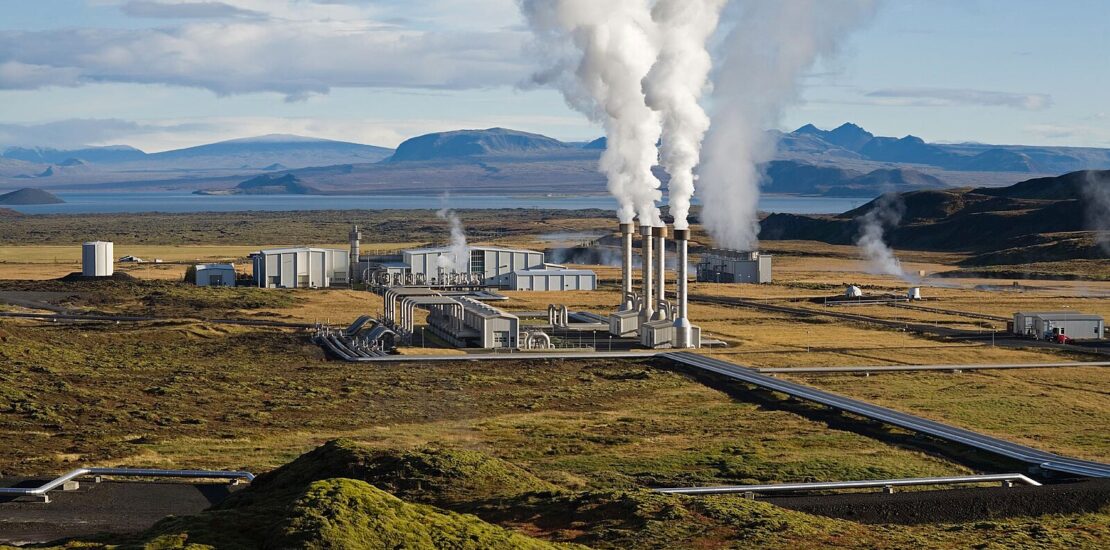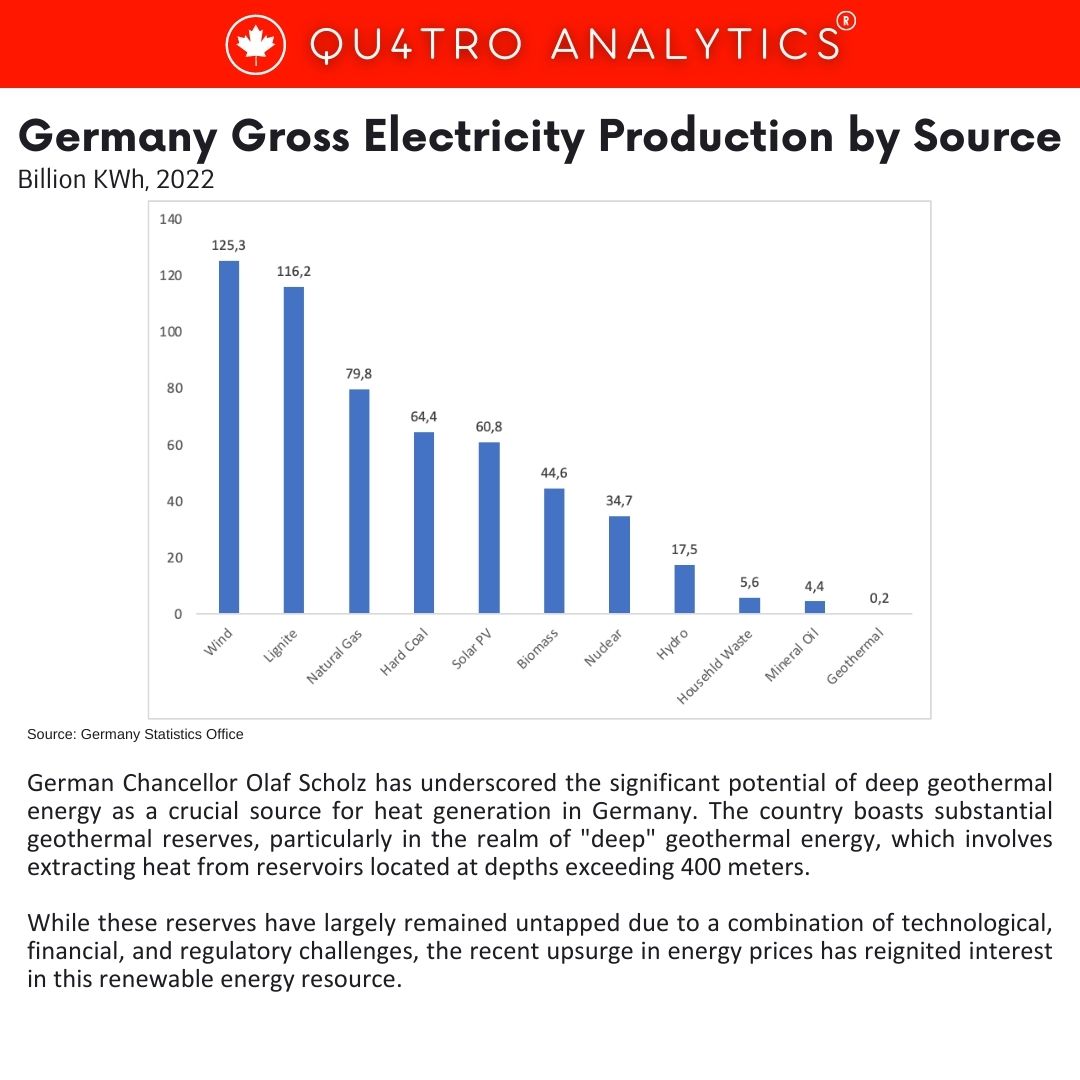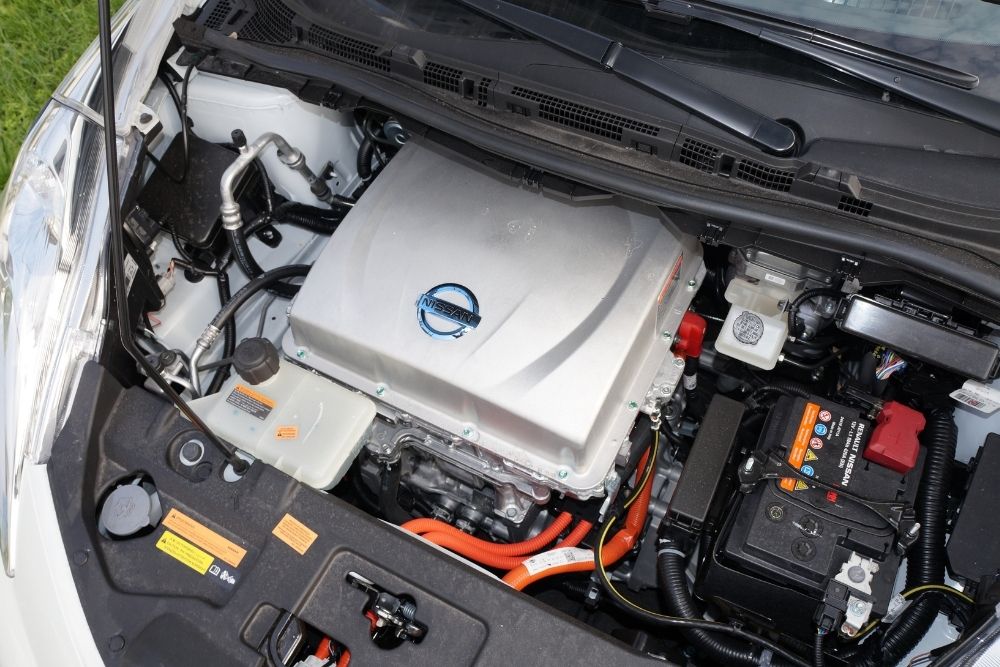Germany looks to add more geothermal into energy mix
- August 25, 2023
- Posted by: Quatro Strategies
- Categories: ESG & Renewable Energy, Europe

German Chancellor Olaf Scholz has underscored the significant potential of deep geothermal energy as a crucial source for heat generation in Germany. The country boasts substantial geothermal reserves, particularly in the realm of “deep” geothermal energy, which involves extracting heat from reservoirs located at depths exceeding 400 meters. While these reserves have largely remained untapped due to a combination of technological, financial, and regulatory challenges, the recent upsurge in energy prices has reignited interest in this renewable energy resource.
Chancellor Scholz has emphasized the ambitious goal of harnessing Germany’s geothermal potential by 2030, aligning with the country’s broader objectives in the realm of renewable energy. Part of this strategy involves the expansion of geothermal energy generation to significantly enhance its contribution to the heating network. The plan envisions an exponential increase of geothermal energy input into the network, potentially reaching levels ten times higher than the current output by the year 2030. This augmentation is expected to be facilitated by a rise in the number of geothermal power stations, with the count projected to increase from the current 42 to 54 in the foreseeable future.
 The Chancellor has highlighted the particular significance of “deep” geothermal energy for local communities and their heat supply. This energy source could play a pivotal role in powering municipal heating systems, providing an efficient and sustainable alternative to traditional fossil fuel-based heating methods. By focusing on geothermal energy expansion, Germany seeks to contribute to its larger renewable energy targets while also addressing the need for more environmentally friendly heat generation methods.
The Chancellor has highlighted the particular significance of “deep” geothermal energy for local communities and their heat supply. This energy source could play a pivotal role in powering municipal heating systems, providing an efficient and sustainable alternative to traditional fossil fuel-based heating methods. By focusing on geothermal energy expansion, Germany seeks to contribute to its larger renewable energy targets while also addressing the need for more environmentally friendly heat generation methods.
However, the path to realizing the potential of geothermal energy is not without its challenges. The geothermal energy sector in Germany has called for the introduction of supportive legislation to facilitate the expansion of this energy source. Issues like local opposition against drilling activities and low government subsidies have hindered the growth of geothermal projects. Nevertheless, the German government’s commitment to bolstering geothermal energy indicates a dedication to overcoming these obstacles and making strides toward a greener energy mix.
A study conducted by the Fraunhofer Institute last year highlighted the extensive capacity of geothermal energy to meet Germany’s heat demand. According to the study, geothermal energy could potentially cover more than a quarter of the country’s annual heat requirements, with an estimated production potential exceeding 300 terawatt hours. As Germany continues its transition away from fossil fuels and intensifies its focus on sustainable energy sources, deep geothermal energy emerges as a promising and essential component of the nation’s future energy landscape.
Interested in learning more?
Sign up for Top Insights Today

Top Insights Today delivers the latest insights straight to your inbox.
You will get daily industry insights on
Oil & Gas, Rare Earths & Commodities, Mining & Metals, EVs & Battery Technology, ESG & Renewable Energy, AI & Semiconductors, Aerospace & Defense, Sanctions & Regulation, Business & Politics.



